
Feature Photo: Sterling Munksgard / Shutterstock.com
10 Most Defiant Songs Of All Time
# 10 – I Won’t Back Down – Tom Petty & The Heartbreakers
In the wake of a devastating house fire in 1987 that destroyed nearly all his possessions, Tom Petty emerged with a steely resolve captured succinctly in the defiant anthem “I Won’t Back Down.” Featured on his critically acclaimed debut solo album, Full Moon Fever, released on April 24, 1989, the song was recorded during 1987 and 1988 at Rumbo Recorders in Canoga Park, California, and M.C. Studios in Los Angeles. Petty co-produced the track alongside Jeff Lynne and fellow Heartbreaker Mike Campbell, a partnership that helped mold the track’s crisp, melodic sound. The lineup was nothing short of exceptional: Petty on lead vocals and guitar, Lynne providing bass guitar and backing vocals, Mike Campbell on lead guitar, Phil Jones on drums, and George Harrison, the former Beatle, lending acoustic guitar and harmony vocals. Commercially, “I Won’t Back Down” proved immensely successful, peaking at number 12 on the Billboard Hot 100 and hitting the top spot on the Billboard Album Rock Tracks chart.
# 9 – No Surrender – Bruce Springsteen
When Bruce Springsteen began crafting songs for his seminal 1984 album, Born in the U.S.A., America was navigating an era of economic uncertainty and cultural upheaval. Among these compositions was “No Surrender,” a song that embodies the defiant spirit of youth, friendship, and unwavering optimism. Recorded between October 25 and 27, 1983, at the Power Station in New York City, “No Surrender” captures Springsteen at his most resilient and reflective. Produced by Jon Landau, Chuck Plotkin, Steve Van Zandt, and Springsteen himself, the track features Springsteen on vocals and guitar, joined by the E Street Band—Roy Bittan on keyboards, Clarence Clemons on saxophone and backing vocals, Danny Federici on organ, Garry Tallent on bass, Max Weinberg on drums, and Steven Van Zandt on guitar and backing vocals.
# 8 – (You Gotta) Fight for Your Right – The Beastie Boys
In 1986, as hip-hop was still establishing its place in mainstream culture, The Beastie Boys exploded onto the music scene with “(You Gotta) Fight for Your Right (To Party!).” Featured on their breakthrough debut album, Licensed to Ill, the track quickly became an anthem for teenage rebellion, though ironically crafted as a playful satire of party culture. The song was recorded in the spring of 1986 at Chung King Studios in New York City, under the meticulous production of Rick Rubin, the legendary producer and Def Jam co-founder known for his sharp instincts in bridging rock and rap music.
# 7 – Get Up, Stand Up (1973) – Bob Marley & The Wailers
Few songs embody the spirit of resistance and activism as powerfully as Bob Marley & The Wailers’ 1973 classic, “Get Up, Stand Up.” Released on their landmark album, Burnin’, in October 1973, the song quickly became a rallying cry for oppressed and marginalized communities around the world. Recorded in April 1973 at Harry J Studios in Kingston, Jamaica, the track was expertly produced by Chris Blackwell alongside the band members themselves, capturing the raw energy and powerful message Marley envisioned. The musicians featured on the recording include Bob Marley on vocals and rhythm guitar, Peter Tosh on vocals and lead guitar, Bunny Wailer providing additional vocals and percussion, Aston “Family Man” Barrett on bass, Carlton Barrett on drums, and Earl “Wya” Lindo on keyboards.
# 6 – Revolution – The Beatles
# 5 – “Hear My Train A Comin’” – Jimi Hendrix
Among Jimi Hendrix’s most emotionally revealing works, “Hear My Train A Comin’” stands as a defiant spiritual reckoning. First recorded in a solo acoustic version on December 19, 1967, at Bruce Fleming’s photography studio in London for a short film directed by Peter Neal, the song would evolve over the next three years into a powerful blues-driven statement of alienation, ambition, and transcendence. Though it never appeared on a studio album during Hendrix’s lifetime, several versions exist—both live and in the studio—each capturing a different facet of his artistic vision. A full-band electric version recorded at Record Plant Studios in New York on April 7, 1969, with Billy Cox on bass and Buddy Miles on drums, was released posthumously on People, Hell and Angels in 2013. Hendrix himself produced the session, as he often did in the later years of his career, shaping the song across formats and performances.
# 4 – Positively 4th Street – Bob Dylan
Released on September 7, 1965, as a standalone single during the most transformative year of Bob Dylan’s career, “Positively 4th Street” is a masterclass in lyrical venom wrapped in folk-rock elegance. The song was recorded on July 29, 1965, at Columbia Studio A in New York City—just a day after Dylan completed the Highway 61 Revisited sessions. Produced by Tom Wilson, the track featured several of the same musicians from those sessions: Al Kooper on organ, Harvey Brooks on bass, Mike Bloomfield on guitar, and Bobby Gregg on drums. The absence of the song from any of Dylan’s studio albums at the time did little to blunt its impact. It charted quickly, peaking at number 7 on the Billboard Hot 100 and number 8 on the UK Singles Chart.
# 3 – Stand – Sly & The Family Stone
Released in March 1969, “Stand!” by Sly & The Family Stone remains one of the most urgent and unflinching declarations of social empowerment ever captured on tape. The title track of the band’s fourth studio album, Stand!, was recorded in late 1968 and early 1969 at Pacific High Recording in San Francisco. Produced and written by Sly Stone—born Sylvester Stewart—the track marked a defining moment for the group, both musically and politically. The core lineup featured Sly Stone on vocals, keys, and production; Freddie Stone on guitar and vocals; Larry Graham on bass and vocals; Cynthia Robinson on trumpet and vocals; Greg Errico on drums; Jerry Martini on saxophone; and Rose Stone on keyboards and vocals. The song’s final mix was famously reworked at the last minute after Stone was dissatisfied with the initial studio recording, bringing in studio musicians to overdub parts before release.
# 2 – We’re Not Going To Take It – Twisted Sister
https://www.youtube.com/watch?v=4xmckWVPRaI
# 1 – Freedom – Richie Havens
https://www.youtube.com/watch?v=rynxqdNMry4
Check out similar articles on ClassicRockHistory.com Just click on any of the links below……
Read More: Artists’ Interviews Directory At ClassicRockHistory.com
Read More: Classic Rock Bands List And Directory
Updated August 7, 2025



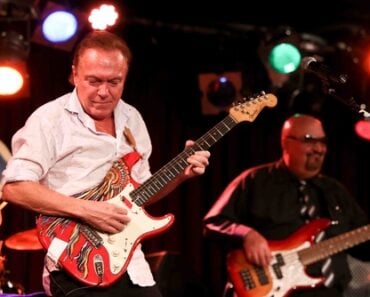



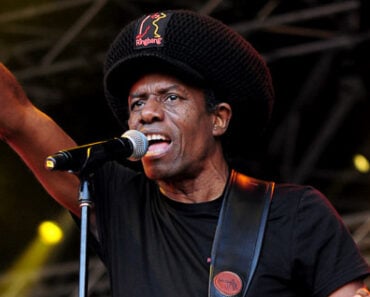


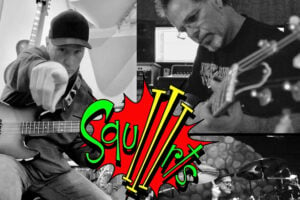
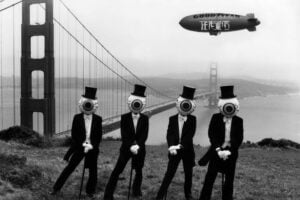





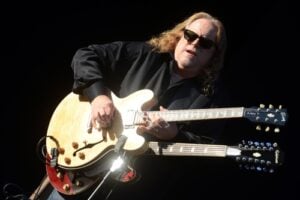




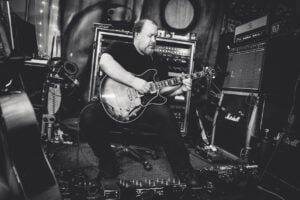













What a list!
Since we are talking about history, let us not miss the true history. Richie Havens was not alone with just. His guitar for Freedom. Actually, he was joined on guitar by Paul “Deano” Williams, on Percussion was Daniel “Natoga” Ben Zebulon